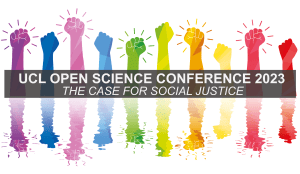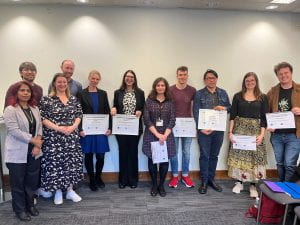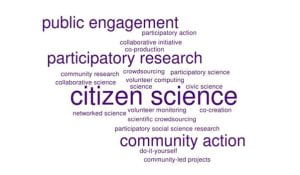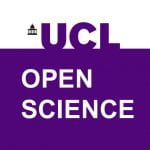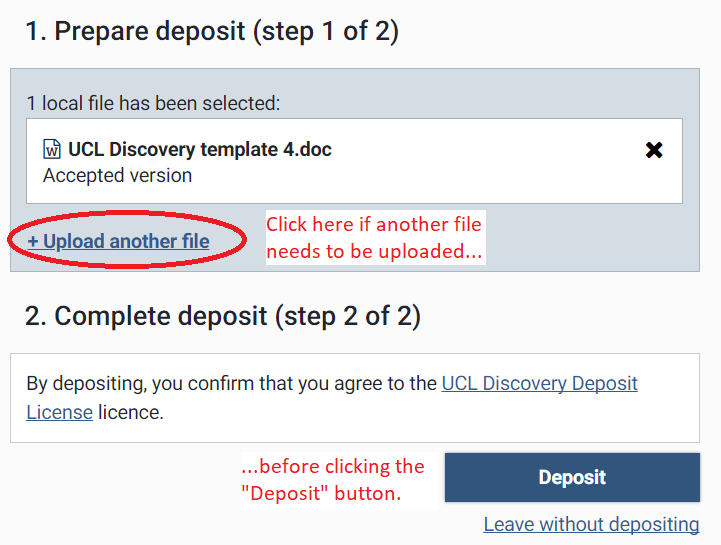UCL Discovery reaches 50 million downloads!
By Rafael, on 27 June 2024
Guest Post by Dominic Allington-Smith (Open Access Publications Manager)
UCL Publications Board and the Open Access Team are delighted to announce that on Monday 24 June, UCL’s institutional repository, UCL Discovery, reached the milestone of 50 million downloads! UCL Discovery is UCL’s open access repository, showcasing and providing access to UCL research outputs from all UCL disciplines. UCL authors currently deposit around 1,675 outputs in the repository every month (average figure for the current academic year).
The 50 millionth download was of the paper ‘Replenishing IRAK-M expression in retinal pigment epithelium attenuates outer retinal degeneration’ originally published in Science Translational Medicine by a team of researchers including UCL co-lead author Professor Andrew Dick. This paper found that increasing the levels of a key protein in the cells at the back of the eye could help protect against the age-related macular degeneration, the leading cause of vision loss among older adults.
 UCL Discovery hosts over 178,500 open access publications at the time of writing, comprising mostly self-archived copies of research outputs published elsewhere to bypass publisher paywalls, but also including doctoral and research master’s theses (contemporary submissions and historic digitisations), and books published by UCL Press. This variety of resources is displayed when viewing the highest-downloaded publication within the UCL hierarchy:
UCL Discovery hosts over 178,500 open access publications at the time of writing, comprising mostly self-archived copies of research outputs published elsewhere to bypass publisher paywalls, but also including doctoral and research master’s theses (contemporary submissions and historic digitisations), and books published by UCL Press. This variety of resources is displayed when viewing the highest-downloaded publication within the UCL hierarchy:
- Faculty of Arts and Humanities: A Connected Curriculum for Higher Education (UCL Press book, 2017)
- Faculty of Laws: Confessions, illegally/improperly obtained evidence and entrapment under the Police and Criminal Evidence Act 1984: changing judicial and public attitudes to the police and criminal investigations (thesis, 1999)
- School of Slavonic and Eastern European Studies: The Gesta Hungarorum of Anonymus, the Anonymous Notary of King Béla: A Translation (journal article, 2009)
- Faculty of Social and Historical Sciences: How the World Changed Social Media (UCL Press book, 2016)
- Faculty of the Built Environment (Bartlett): Why are most buildings rectangular? (journal article, 2006)
- Faculty of Engineering Sciences: Semi-structured qualitative studies (book chapter, 2013)
- Faculty of Maths and Physical Sciences: The Traditional Four Steps Transportation Modeling Using a Simplified Transport Network: A Case Study of Dhaka City, Bangladesh (journal article, 2012)
- Faculty of Brain Sciences: What is mentalization? The concept and its foundations in developmental research (book chapter, 2012)
- Faculty of Life Sciences: Evaluation of the scale, causes and costs of waste medicines. Report of DH funded national project (report, 2010)
- Faculty of Medical Sciences: Textbook of Plastic and Reconstructive Surgery (UCL Press book, 2016)
- Faculty of Population Health Sciences: Food, Nutrition, Physical Activity, and the Prevention of Cancer: a Global Perspective (report, 2006)
- Institute of Education: Teaching at a distance in a digital age: perspectives from the Philippines (thesis, 2013)
This amazing milestone shows the scope and reach that sharing research through UCL Discovery has. There are a number of ways you can share your research at UCL, and we encourage you to continue sharing your research publications via UCL RPS and Profiles. Additionally, consider sharing other types of outputs such as data, code and software to further enhance the visibility and reproducibility of your work. The Research Data Management team maintain a guide on best practice for software sustainability, preservation and sharing, and can give further support to UCL researchers as required.
Congratulations to everyone involved in reaching this incredible milestone, and let’s continue to push the boundaries of open access and research sharing at UCL!
Get involved!
 The UCL Office for Open Science and Scholarship invites you to contribute to the open science and scholarship movement. Stay connected for updates, events, and opportunities. Follow us on X, formerly Twitter, LinkedIn, and join our mailing list to be part of the conversation!
The UCL Office for Open Science and Scholarship invites you to contribute to the open science and scholarship movement. Stay connected for updates, events, and opportunities. Follow us on X, formerly Twitter, LinkedIn, and join our mailing list to be part of the conversation!
 Close
Close



